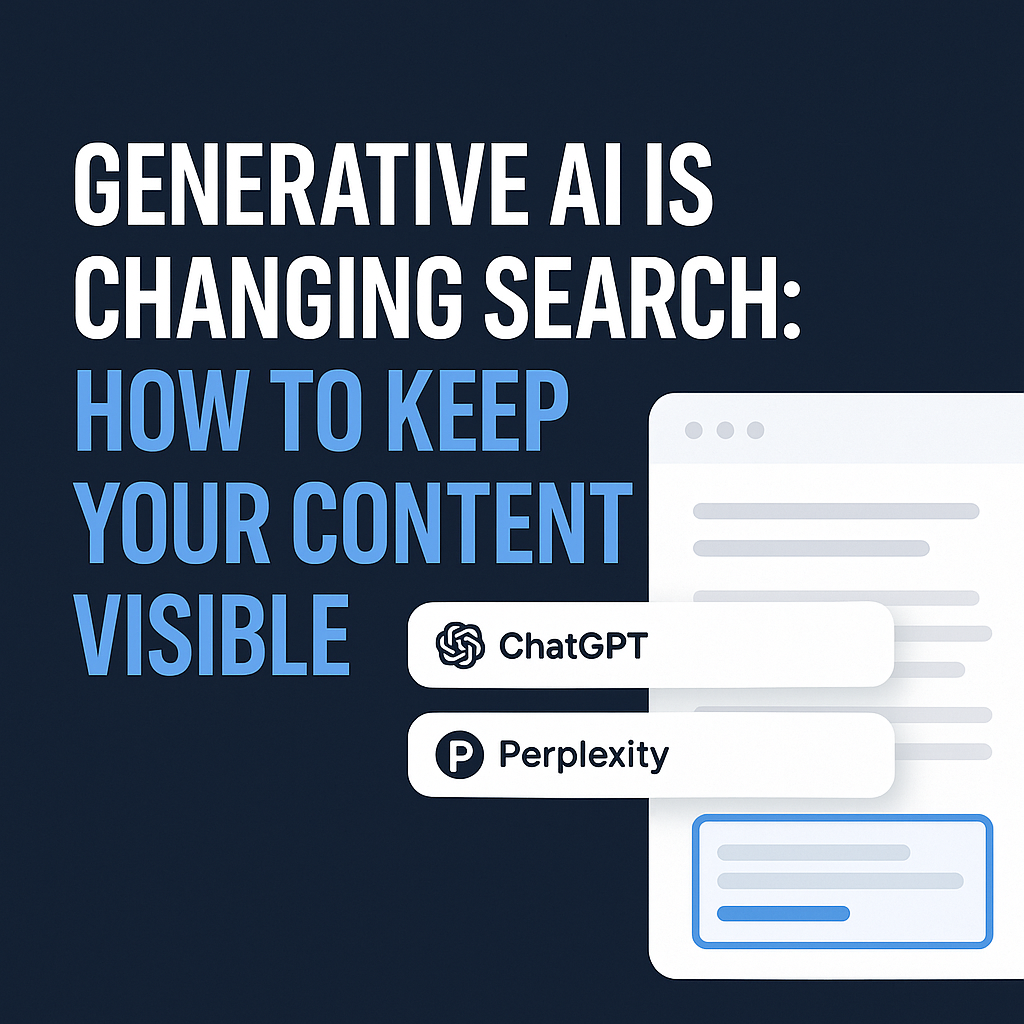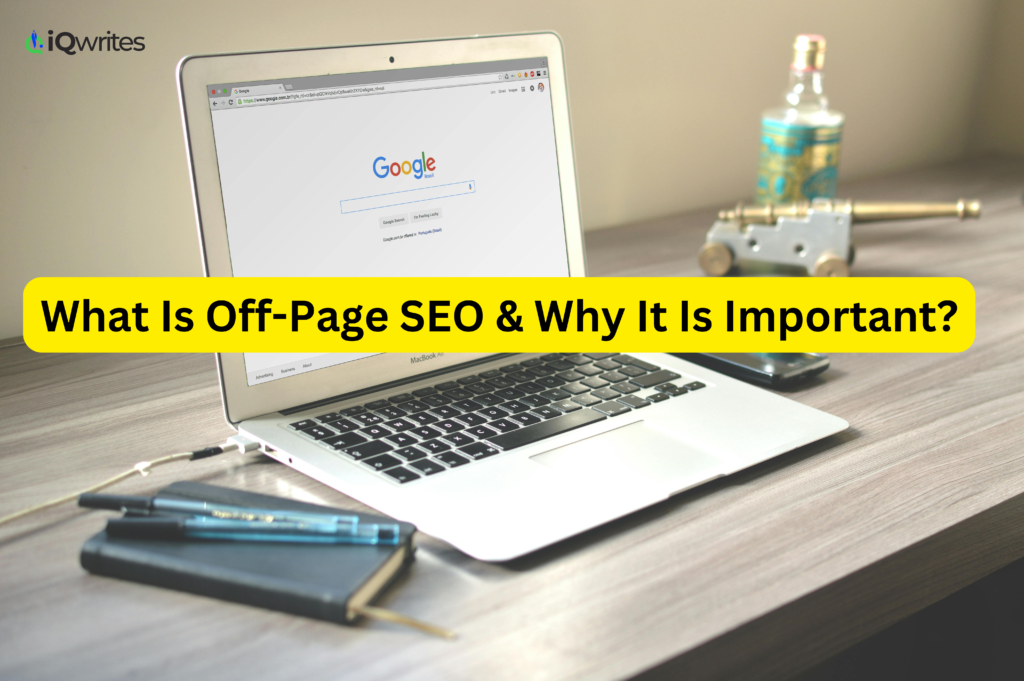Generative AI Is Changing Search: How to Keep Your Content Visible
Search as we know it is evolving—fast. With the rise of AI-powered search engines like ChatGPT, Perplexity, and even Google’s Search Generative Experience (SGE), the traditional click-and-search model is giving way to dynamic, AI-curated answers. This shift offers faster information retrieval for users, but it presents a major challenge for content creators and marketers: How do you ensure your content is still seen?

Top SEO Misconceptions That Are Holding You Back in 2025
If you’re not adapting, you risk losing traffic. Here’s how to stay ahead of the curve and keep your content visible in the era of generative AI.
Understanding the Shift: How AI is Reshaping Search
Generative AI tools are not just search engines—they’re answer engines. They synthesize content from multiple sources to generate concise, human-like responses. This means:
-
Less traffic to traditional web pages as AI tools deliver direct answers.
-
Higher competition to be cited or referenced by these AI tools.
-
New opportunities for visibility in summaries, citations, and sources.
Why Your Current SEO Strategy Might Be Obsolete
Traditional SEO focuses on keyword optimization, backlinks, and metadata to rank in search engine results pages (SERPs). But generative AI doesn’t operate like a conventional search engine—it evaluates context, authority, and clarity at scale.
If you’re still optimizing solely for Google’s ranking algorithm, you’re missing out on a growing share of AI-assisted traffic. It’s time to evolve your approach.
Accessibility SEO: How Web Accessibility Boosts Search Rankings
How to Make Sure Your Content Stays Visible in the AI Era
1. Focus on Topic Authority, Not Just Keywords
AI systems look for trustworthy, in-depth content from authoritative sources. Build topical authority by:
-
Publishing content clusters around a core theme.
-
Updating outdated posts to reflect the latest insights.
-
Earning mentions from reputable sites in your niche.
2. Structure Your Content for AI Summarization
AI tools extract answers from clear, structured content. Help them by:
-
Using subheadings (H2s, H3s) to break down topics.
-
Creating bullet points and concise answers within your articles.
-
Including FAQs to anticipate and directly address user questions.
Edge SEO: The Future of Technical SEO Optimization
3. Prioritize Accuracy and Citability
To get cited by tools like Perplexity or ChatGPT (when browsing is enabled):
-
Reference reliable data and link to authoritative sources.
-
Ensure factual correctness—AI tools penalize misleading or speculative claims.
-
Include author bylines and updated timestamps for trustworthiness.
4. Embrace Semantic Search
AI understands context better than ever. Instead of keyword-stuffing:
-
Use related terms and natural language throughout your content.
-
Optimize for intent-based queries (e.g., “how to choose the best golf shoes for seniors” instead of “best golf shoes”).
5. Use Schema Markup
Structured data helps AI understand your content better:
-
Implement schema.org types like
FAQPage,HowTo,Article, andProduct. -
Use JSON-LD for easier integration with most CMS platforms.
-
Add author, datePublished, and organization markup for added trust signals.
Future-Proof Your Content Strategy
As AI-generated answers become the norm, content marketers must shift focus from ranking to referencing. Your goal should be to:
-
Become the source that AI pulls from.
-
Produce evergreen, helpful content that serves both humans and machines.
-
Monitor AI tools to understand how they interpret and cite content.
Bonus Tip: Optimize for Emerging AI Platforms
Stay ahead by experimenting with platforms like:
-
Perplexity.ai – Prioritize clear citations and concise information.
-
ChatGPT Plugins/Browsing – Make your site crawlable, accessible, and factually rich.
-
You.com & Bing AI – Understand how these models prioritize sources and adapt accordingly.
Adapt or Get Left Behind
Generative AI is not the future of search—it’s the present. Content that isn’t structured for AI discoverability may never see the light of day. By embracing semantic SEO, improving your content’s structure, and becoming a credible source of information, you’ll not only retain traffic—you’ll thrive in the next era of digital discovery.
FAQs
What is generative AI in search?
Generative AI in search refers to tools like ChatGPT, Perplexity, and Google’s SGE that generate answers using large language models, pulling and synthesizing data from multiple sources.
Will traditional SEO still matter?
Yes, but it needs to evolve. Technical SEO, user experience, and semantic understanding are still crucial, but strategies must now also align with AI interpretation and content synthesis.
Can AI search engines drive traffic to websites?
Yes, but only if your content is deemed credible, useful, and structured for AI systems to reference or link back to.
What types of content perform best in AI search?
Informational, well-cited, and clearly structured content (like how-to guides, FAQs, and authoritative articles) tends to perform well in AI-generated search results.

